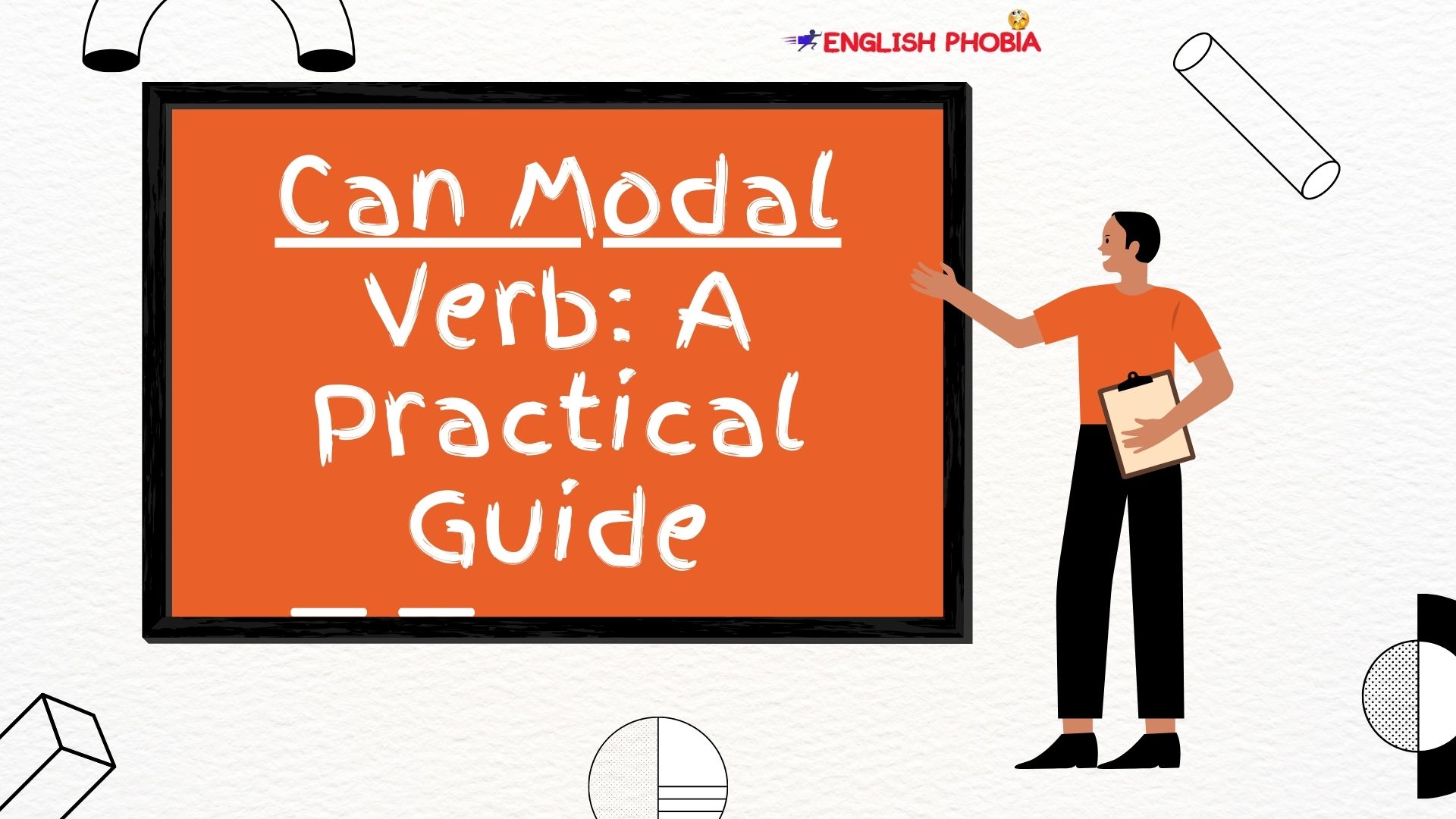Modal verbs are a special category of verbs in English. They show express ability, permission, possibility, obligation, or necessity. They often change the main verb in a sentence and help convey the speaker's attitude or stance. There are some English Grammar Modal Verb Rules, you should learn them.
The most common modal verbs in English are can, could, may, might, must, shall, should, will, would, and ought to.
In English, we have a total of 13 modal verbs. These are can, could, may, might, must, shall, should, will, need, used to, ought to, dare, and would.
Rules for Using “Can” in Various Sentence Types:
1) Affirmative Sentences:
Rule: Use [“can” + V1 ] to express ability or permission in positive statements.
1) She can swim across the lake.
2) They can attend the party tonight.
2) Negative Sentences:
Rule: Use “cannot” or “can't” + V1 to show inability or prohibition.
1) I cannot solve this puzzle.
2) We can't go to the concert because of the schedule clash.
3) Interrogative Sentences:
Rule: Invert the subject and “can” to form questions asking about ability, permission, or requests.
1) Can you lend me your pen?
2) Can he join us for dinner?
- Negative Interrogative Sentences:
Invert the subject and “can” and add “not” (or “n't”) to form questions asking about inability or impossibility.
1) Can't you see that I'm busy?
2) Can't she find her keys anywhere?
We use “Can” to express various meanings and functions in English:
- Ability: We use ‘Can” to show someone's capacity or capability to do something.
For example,
I can swim very well.
1) She can speak five languages fluently.
2) They can play the guitar beautifully.
3) He can run a marathon in under three hours.
4) I can solve complex mathematical equations.
5) We can cook delicious meals from different cuisines.
- Permission: We use “Can” to seek or grant permission for an action.
For example,
Can I use your phone?
1) Can I use your laptop for a moment?
2) Can I borrow your pen?
3) Can I take a day off from work?
4) Can Roma eat a piece of cake, please?
5) Can I enter the restricted area with proper authorization?
- Possibility: We use “Can” to express a possibility or likelihood of something happening.
For example,
It can rain tomorrow.
1) It can snow heavily in the mountains during winter.
2) The train can be late due to inclement weather.
3) Your favorite team can win the championship this year.
4) Learning a new instrument can be challenging but rewarding.
5) With enough practice, you can become a skilled painter.
- Requests: We use “Can” to make requests in a polite manner.
For example,
Can you please pass me the salt?
1) Can you please turn down the volume of the television?
2) Can you lend me some money until I get paid?
3) Can you pick up some groceries on your way home?
4) Can you help me carry these heavy boxes?
5) Can you please email me the report by tomorrow morning?
- Offers: We use “Can” to make offers or suggest something.
For example,
Can I help you with your bags?
1) Can I give you a hand with cleaning the house?
2) Can Neha get Pinky a cup of coffee?
3) Can I assist you with finding the right size?
4) Can I book a table for you at the restaurant?
5) Can I drive you to the airport tomorrow?
Rules to use “Can”:
1) Use “can” to talk about general abilities or capabilities.
Example: She can play the piano.
2) Use “can” to seek or grant permission.
Example: Can I go to the party?
3) Use “can” to express possibilities or likelihood. Example: It can be challenging to learn a new language.
4) Use “can” to make polite requests or offers.
Example: Can you please turn down the volume?
5) Use “can” with negative sentences to show that something is not possible.
Example: Neha can't visit office tomorrow.
Examples of “Can” with each rule:
1) Ability: He can solve complex math problems.
2) Permission: Can I use your computer for a moment?
3) Possibility: It can snow heavily in this region during winter.
4) Requests: Can you help me carry these boxes?
5) Offers: Can I get you a cup of coffee?
Conclusion:
Modal verbs, including “can,” plays an important role. They express abilities, permissions, possibilities, and making requests or offers. Understanding the rules for using “can” allows for effective communication in English.
Original Source: https://englishphobia.com/can-modal-verb-a-practical-guide







